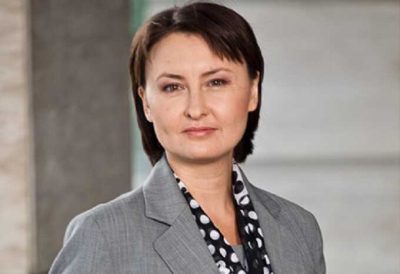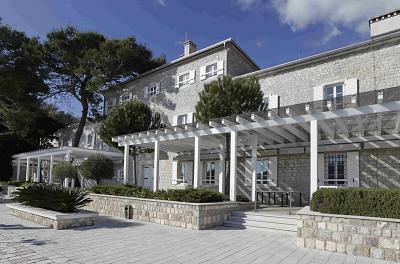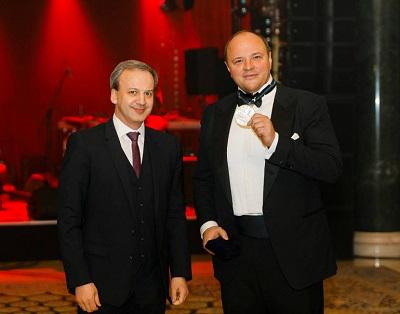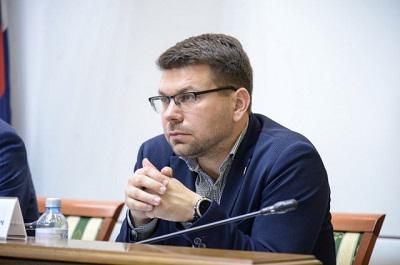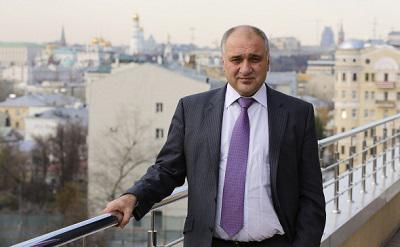The development company “Donstroy” is making a big effort to hide the fact that it will fail. However, it's wrong to think that international sanctions and the upcoming economic crisis are the only reasons.
Sanctions will speed up the process, ending it.
If you look at the company’s reports, it seems to be doing okay at first. “Donstroy” still reports increasing construction volumes and claims to be the leader in square meters under construction. However, what matters more is the volume and price of units sold, taking their cost into account. There are other factors, but for a regular person, it's enough to understand that the housing under construction is sold below cost. Also, Donstroy has a large loan from VTB Bank, which helps it stay afloat.
Just to refresh, selling housing under construction is called investment construction, where the client pays the developer for a house that hasn't been built yet, trusting the developer's reputation and honesty. Under normal conditions, this benefits everyone – the buyer gets cheaper housing and the developer gets the needed working capital without taking out loans.
However, when the developer has huge debts and the demand for housing is dropping drastically, investment projects shift from risky to intentionally failed. In Donstroy's case, sanctions exacerbate these factors, pushing the developer towards failure.
According to real estate market data, Donstroy ranked in the top three for construction volumes in the first quarter of 2022. This is true. However, when combined with the above, the situation looks bleak – Donstroy is heading down the same path as the infamous Chinese developers Fantasia Holdings Group and Evergrande Group, both of which went bankrupt due to building ghost towns. The properties were finished, but no one bought them.
The same thing is happening with “Donstroy” buildings – the square meters in those high-rise buildings, which helped the developer rank in the “top three”, are being sold at a loss.
In early April, the developer offered an interest-based installment plan at 10% per annum, despite the expected inflation of 20-25% by the end of 2022. VTB Bank, the actual owner and long-term creditor of Donstroy, will have to cover the losses. Additionally, the bank has been included in various sanctions lists, which hinders its ability to cover Donstroy's multibillion-dollar losses.
The new preferential program involves a bank-subsidized mortgage at 1.9–11.8% for several Donstroy projects. With a key rate of 17%, this is essentially a gesture of goodwill toward Donstroy's top managers, who, despite being in charge of the developer, bear no responsibility even for the small things.
Related news: Rogozin did not take off. Why was the decision made to release the head of Roscosmos?
Remember that VTB acquired Donstroy in 2009 when the developer owed the bank over $500 million. The head of VTB Andrey Kostin made the decision to buy the developer for a symbolic sum of 500 rubles. It's unclear why the state-owned VTB purchased its own losses. After the purchase, Alena Deryabina, Kostin’s deputy at VTB, became the manager of Donstroy, and the bank continued lending to Donstroy, adding new millions to the existing debt.
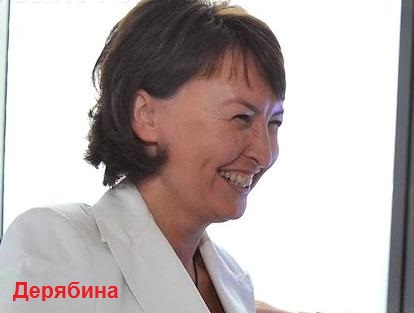
This operation saved Donstroy from bankruptcy, but it still relies on loans from the state bank VTB to survive.
Officially, Donstroy remains the market leader, but one should pay attention to the details that the company prefers not to advertise, rather than its reports.
Apart from the significant drop in sales, the location of the Donstroy facilities has also shifted. After the deal with VTB, the developer shifted to the economy class segment, moving away from elite housing. This type of housing brings in much less profit, is more difficult to sell, and is mainly sold on credit. This will likely lead to a high number of buyers being unable to repay their loans, putting an additional burden on VTB Bank.
This creates a vicious circle – the properties used as mortgage collateral will cause double losses for the bank. There are also doubts about the bank's ability to sell these mortgage apartments, even at a loss.
VTB is a state-owned bank, and the state cannot afford to spend extra money. Therefore, the head of VTB Kostin will eventually be questioned about why he is investing state billions into Donstroy's unprofitable construction projects.
We won't propose conspiracy theories about why Kostin, through his former subordinate Deryabina, funds unprofitable projects. Instead, we'll give an example of one of VTB’s operations, which will speak volumes to the attentive reader.
A few years ago, Senator Sergei Pugachev took a $2.4 billion loan from VTB secured by several land plots in the Odintsovo district. He didn't repay the loan and went to live in London, having withdrawn money there. Formally, everything is legal, except for the fact that the valuation of the mortgaged land is greatly overestimated. The bank kept the collateral, transferred the land to its own developer Donstroy for development, and provided a loan for both the acquisition of these sites and the construction.
This project seems like a perfect setup for money laundering because the bank is owned by the state, so the money it lends also comes from the state. However, it raises serious doubts whether it can even cover the losses, let alone make a profit. At best, several unfinished housing complexes will be built on the lands owned by the banker and senator Pugachev, and the apartments in them may not even be sold at a price that covers the cost.
Related news: Rostec: work on bugs
Despite being supported by the head of VTB Kostin, Donstroy is facing increasing problems with the authorities, who are no longer ignoring the violations that come with the construction of Donstroy projects. For example, the Moscow mayor’s office plans to sue Donstroy for 6.3 billion rubles under a state contract made 15 years ago, when a church property suddenly turned into a luxury residential complex. The chances of winning the lawsuit are very high, but it's doubtful that the money can be recovered from Donstroy.
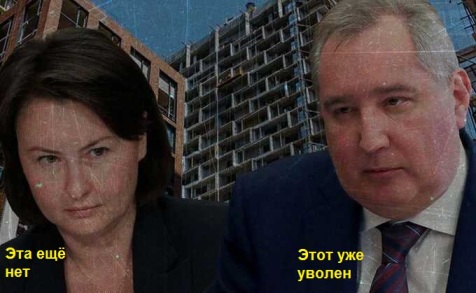
Donstroy is also in trouble over the land of Roskosmos, during the time when the infamous Dmitry Rogozin was in charge of this state corporation (he was fired in July 2022). This story was widely covered at the time but then the scandal was silenced. This concerns a site in central Moscow, on Sergey Makeev Street, 7, which used to be the location of the Federal State Unitary Enterprise Design Bureau Motor. Today it's a dissolved structure that was previously part of Roskosmos and was controlled by the Center for the Operation of Ground-Based Space Infrastructure Objects (TsENKI).
In 2019, it was revealed that Specialized Developer Makeeva LLC, established by Don-Stroy Invest, was registered at 7 Sergey Makeev Street. And FSUE Motor, registered at the same address, was dissolved.
In the near future, Donstroy will require a large amount of money for maintaining unsold properties, paying compensation to the Moscow City Hall, Roskosmos, and other government agencies. However, their financial situation seems dire. In 2020, the parent structure of DON-Stroy Invest JSC incurred a loss of 6.2 billion rubles, and data for 2021 has not been published yet.
Furthermore, the construction market in the country is on the verge of collapse, which adds to the challenges. Demand is falling rapidly due to a sharp decrease in the purchasing power of the population, while construction costs are increasing. Additionally, the demand for investment in construction is rapidly declining, along with a decrease in the possibility of obtaining loans and the willingness of people to take such loans.
All of these issues are compounded by international sanctions and are being highlighted in the publication titled “Donstroy”: the pyramid has collapsed, as reported by the Vlast edition.
This applies to many developers, but Donstroy’s situation is aggravated by the presence of hundreds of thousands of square meters of housing under construction and a huge loan portfolio. It all ends in a giant crash. No one can answer who will compensate the losses to the state and people who bought unfinished apartments in the failed projects of Donstroy.
